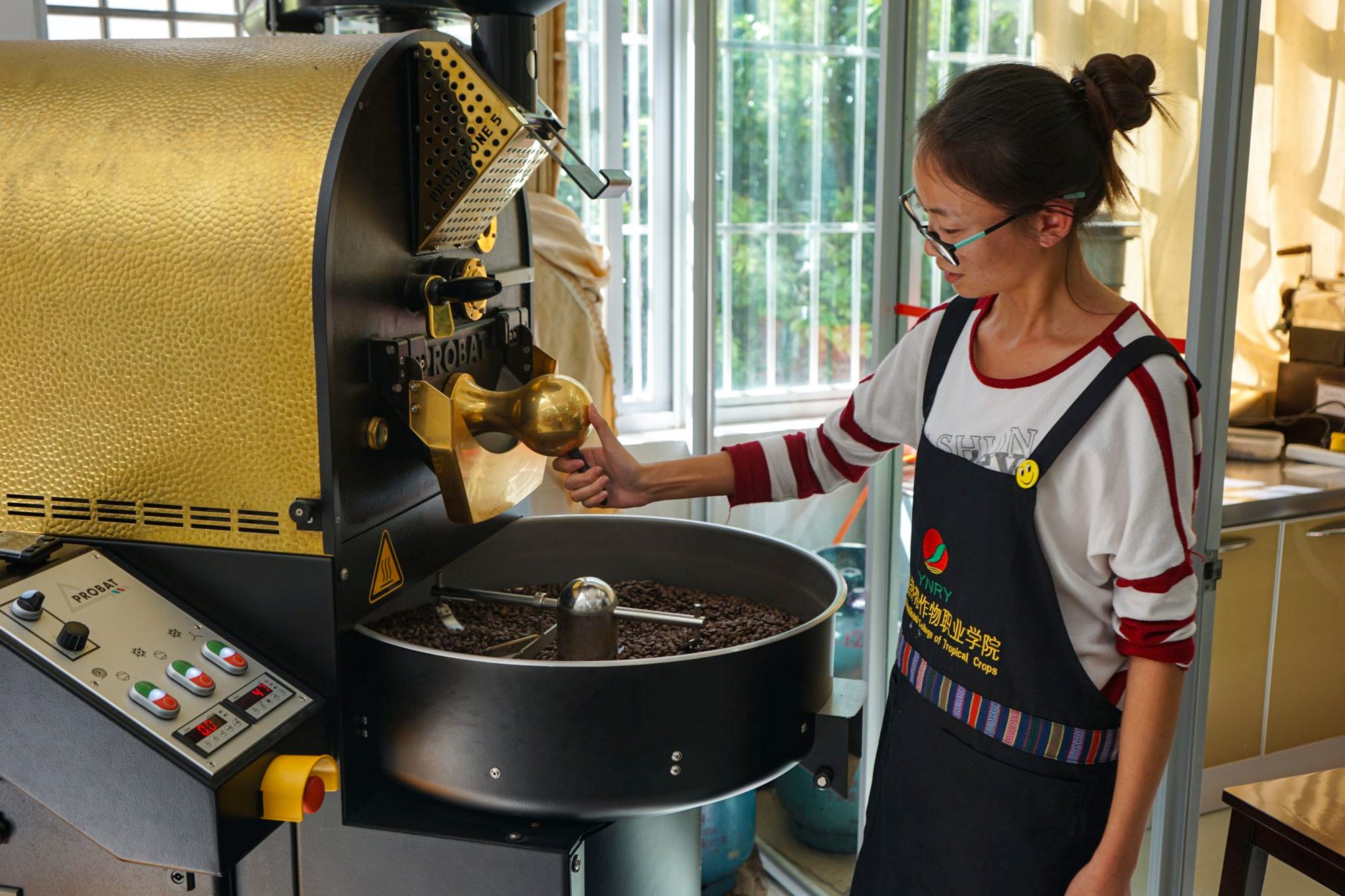According to a course description on the university’s website, the major covers subjects such as coffee flavor chemistry, processing, quality and safety testing, factory design and environmental protection, global coffee trade, engineering principles, and nutrition and health.
According to the university, this is “the first major in the country to train undergraduates in specialized coffee talent.”
According to the U.S. Department of Agriculture, China is the world’s 13th largest coffee producer, but accounts for just 1.1 percent of global production, or about 1.8 million 60-kilogram bags of coffee beans per year.
About 98 percent of the coffee beans are grown in Yunnan province, Chinese-language news site Science Times reported last week.
According to state news agency Xinhua, in 2022, Yunnan’s coffee cultivation area will total 84,600 hectares (209,000 acres), with annual production of green coffee beans reaching 114,000 tonnes, valued at 41.8 billion yuan (US$5.7 billion).
“Why wasn’t the world’s first coffee specialist born in this era? [southern] “Why plant trees in places like this? One of the biggest reasons is that research and development and tree planting are separated,” Yang said.

Liao Xiugui, a small-scale coffee farmer in Yunnan province, said the biggest obstacle for farmers wanting to expand production was a lack of manpower and technology, according to Science Times.
“Only through the specialized intervention of university education and the continuous strengthening of quality training for new coffee farmers will their cultivation, management, harvesting and processing be able to continue.” [and other aspects improve]” said Liao.
Although bachelor’s degrees in coffee science are new, China is not the only country offering specialized coffee-related higher education.
The Zurich University of Applied Sciences in Switzerland offers a Certificate in Advanced Studies in Coffee Excellence that incorporates the science of coffee into its curriculum.
In the United States, the University of California, Davis, opened the country’s first coffee research center in May. Although the school does not offer a coffee major, it already offers coffee-related elective courses.
William Ristempert, a professor of chemical engineering at UC Davis and founding director of the school’s Coffee Center, said in a university video that coffee is “incredibly complex” yet has not been the subject of academic research.
Ristempert said that over the past decade or so, researchers have started thinking about chemical engineering in the context of coffee, and that’s what he wanted to study at UC Davis.
Meanwhile, Yang said Yunnan Agricultural University hopes to open up its coffee science and engineering program to global internships and exchanges.

